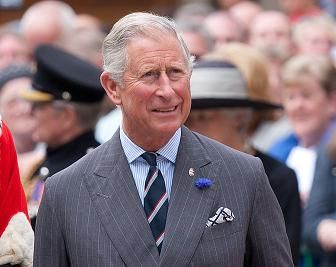Prince Charles: COP21 Paris climate deal a “Magna Carta for the Earth”
The Prince said that the summit scheduled for December 2015 could be the "last chance" to save the Earth from the threats of climate change

A new global binding climate agreement set to be signed this year in Paris at the COP21 UN summit could be a "Magna Carta for the Earth", according to Prince Charles.
The Prince said that the summit scheduled for December 2015 could be the "last chance" to save the Earth from the threats of climate change.
The United Nations plans to replace the Millennium Development Goals with a new set of sustainable development targets agreed on by member states at the Paris conference.
The Magna Carta agreement of 1215 limited the power of the monarch and established human rights for people in England.
Charles said: "We simply cannot let this opportunity go to waste. There is just too much at stake, and has been for far too long."
Speaking at a meeting of forestry and climate experts in London the Prince said: "In the 800th anniversary year of the Magna Carta, perhaps this year's agreement of the new sustainable development goals and a new climate agreement in Paris should be seen as a new Magna Carta for the Earth, and humanity's relationship with it."
Charles added: "[This is] an absolutely crucial opportunity, if not the last chance before we end up in an irreversible situation, for the international community to establish a new set of interlocking, coherent and ambitious frameworks governing human development, poverty, disaster risk reduction, the natural environment and climate change. We could, and should, see an agenda set for the coming decades that is capable of transforming the prospects for humanity by improving and nurturing the state of the planet upon which we all depend."
Mary Robinson, former president of Ireland and now the UN's special envoy for climate change, echoed the Prince’s message by saying: "This is the most important year since 1945. In 1945, at the end of the Second World War, we got the charter for the United Nations, the international institutions [that embodied it], the Marshall Plan, and a few years later we got the Universal Declaration of Human Rights. This year we have to get a similar order of decisions, which will determine the future for decades, and longer."
She highlighted the Paris deal and the sustainable development goals as achievements that would complement each and help to build a more environmentally stable and healthy future for the world.
Global governments are due to sign a new binding pact at the end of the year in Paris which would see nearly all of the world's nations set clear targets and measures to cut greenhouse gas (GHG) emissions, to come into effect from 2020.
The United States and China have made important progress in the build up to COP20 with the world's two biggest emitters setting carbon reduction targets.
The U.S. has pledged to reduce emissions by 26 per cent to 28 per cent by 2025, compared with 2005 levels, with China committing to reach its GHG emissions peak by 2030.
The European Union has also announced its target to reduce emissions by 40 per cent by 2030, compared with 1990 levels.




